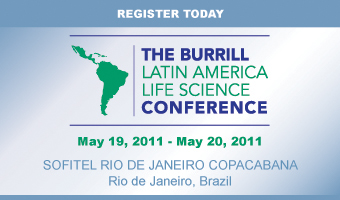“It would be completely unwarranted to exclude a senior executive against whom there has never been any allegation of wrongdoing whatsoever.”
Howard Solomon, the longtime CEO of Forest Laboratories, will challenge what his company characterized as “unwarranted and unprecedented” potential efforts by federal officials to exclude him from doing business with the government, a move that would effectively force him out of the company.
Earlier this month the company said Solomon received a letter from the Office of the Inspector General of the U.S. Department of Health and Human Services notifying him it was considering excluding him from doing business with federal programs and giving him 30 days to respond. The letter follows a $313 million settlement between Forest and the U.S. Department of Justice announced in September 2010 over criminal and civil charges relating to the company’s marketing and distribution of its thyroid drug Levothroid, and the anti-depressants Celexa and Lexapro.
The company said the only basis given in the letter notifying Solomon of the potential action is that he is “associated with” Forest. The company said he plans to commence immediate litigation to prevent such exclusion from taking effect if HHS decides to proceed.
“It would be completely unwarranted to exclude a senior executive against whom there has never been any allegation of wrongdoing whatsoever,” William Candee III, a Forest board member said on behalf of the company’s entire board of directors in a statement issued by the company. He noted that at no time during the government's six year investigation of Forest was Solomon “ever accused of any wrongdoing in connection with the matters settled in 2010 and said the board believes that should HHS move ahead with effort to exclude Solomon, the action may well be “beyond its legal authority.”
The Office of Inspector General of HHS has excluded more than 30 people from doing business with the government since it was given statutory authority to do so under the Social Security Act in 1996, but in most of those instances these were executives or owners of smaller businesses, such as pharmacies, nursing homes or billing services. The office in 2008 excluded three former executive officers of the pharmaceutical company Purdue Frederick based on their convictions for misbranding of the painkiller OxyContin. Each of the executives was convicted based on his status as a responsible corporate officer. More recently in 2010, the office excluded KV Pharmaceutical ex-CEO Marc Hermelin even though at the time he had not been convicted of a crime.
In testimony in March before the House Committee on Ways and Means Subcommittee on Oversight, Lewis Morris, chief counsel to the Inspector General of HHS, expressed concern that the office need to reach deeper into its toolbox to affect the behavior of corporations. “We are concerned that the providers that engage in healthcare fraud may consider civil penalties and criminal fines a cost of doing business. As long as the profit from fraud outweighs those costs, abusive corporate behavior is likely to continue,” he said. “For example, some major pharmaceutical corporations that have been convicted of crimes and paid hundreds of millions of dollars in False Claims Act settlements continue to participate in the Federal healthcare programs, in part because of the potential patient harm that could result from an exclusion.”
Morris said one way to fix the problem is to alter the cost-benefit calculus of the corporate executives who run these companies. “By excluding the individuals who are responsible for the fraud, either directly or because of their positions of responsibility in the company that engaged in fraud, we can influence corporate behavior without putting patient access to care at risk.”
In December, the consumer advocates Public Citizen noted in a report that the pharmaceutical industry had surpassed the defense industry as the “biggest defrauder of the federal government,” paying civil and criminal settlements of $19.8 billion over the past 20 years in 165 state and federal settlements. Many of the infractions, Public Citizen noted, stemmed from the practice of off-label promotion of pharmaceuticals – the illegal promotion of a drug for uses not approved by the Food and Drug Administration. “The danger to public safety and loss of state and federal dollars that comes with these violations require a more robust response,” Sidney Wolfe, director of the Health Research Group at Public Citizen said with the release of the report.
The effort by HHS is seen as a significant ratcheting up of enforcement efforts by the government, particularly because Solomon is an executive who was not found guilty of a crime or even charged with one. No doubt there is frustration and embarrassment on the part of the government, which despite greater and greater settlements feels ineffective at curbing violations.
The question is whether the industry will respond with soul searching and serious efforts to curb illegal practices, or whether it will view this shot across its bow as a declaration of war. Should HHS move forward to exclude Solomon, it’s likely the industry will be fighting fire with fire, and lawyers, and money.
April 28, 2011
http://www.burrillreport.com/article-feds_turning_up_the_heat_on_off_label_marketing_violators.html






.gif)
